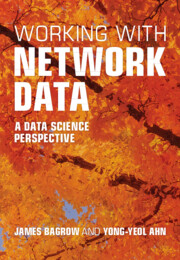Book contents
- Frontmatter
- Contents
- Preface
- Part I Background
- Part II Applications, tools, and tasks
- Interlude — Good practices for scientific computing
- Chapter 17 Research record-keeping
- Chapter 18 Data provenance
- Chapter 19 Reproducible and reliable code
- Chapter 20 Helpful tools
- Part III Fundamentals
- Conclusion
- Bibliography
- Index
Chapter 20 - Helpful tools
from Interlude — Good practices for scientific computing
Published online by Cambridge University Press: 06 June 2024
- Frontmatter
- Contents
- Preface
- Part I Background
- Part II Applications, tools, and tasks
- Interlude — Good practices for scientific computing
- Chapter 17 Research record-keeping
- Chapter 18 Data provenance
- Chapter 19 Reproducible and reliable code
- Chapter 20 Helpful tools
- Part III Fundamentals
- Conclusion
- Bibliography
- Index
Summary
Many tools exist to help scientists work computationally. In addition to general-purpose and domain-specific programming languages, a wide assortment of programs exist to accomplish specific tasks. We call attention to a number of tools in this chapter, focusing on good practices when using them, good practices computationally and good practices scientifically. Important computing tools for data scientists include computational notebooks, data pipelines and file transfer tools, UNIX-style operating systems, version control systems, and data backup systems. Of course, the world of computing moves fast, and tools are always coming and going, so we conclude with advice and a brief workflow to guide you through evaluating new tools.
Keywords
- Type
- Chapter
- Information
- Working with Network DataA Data Science Perspective, pp. 301 - 314Publisher: Cambridge University PressPrint publication year: 2024

